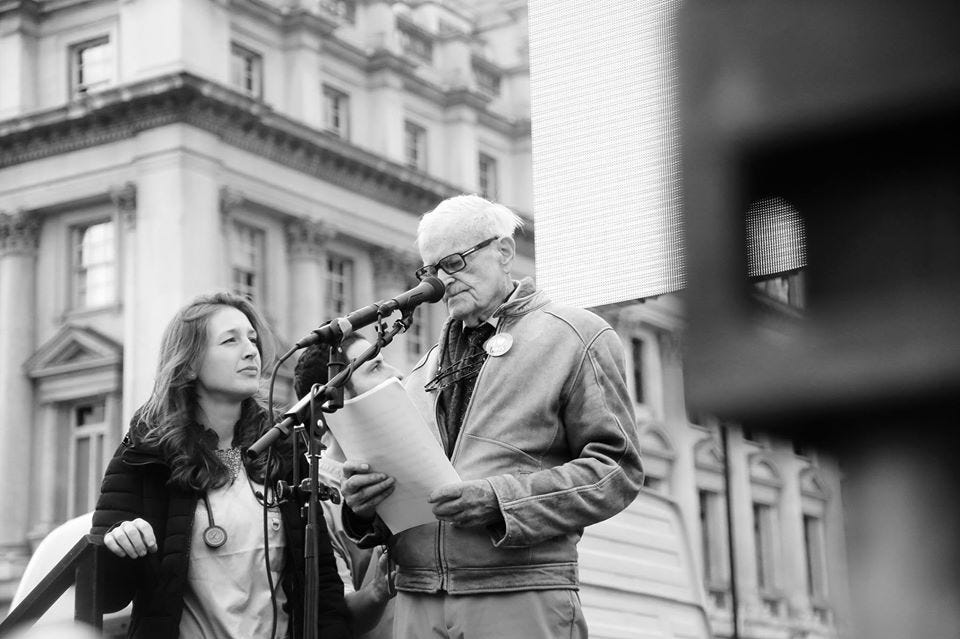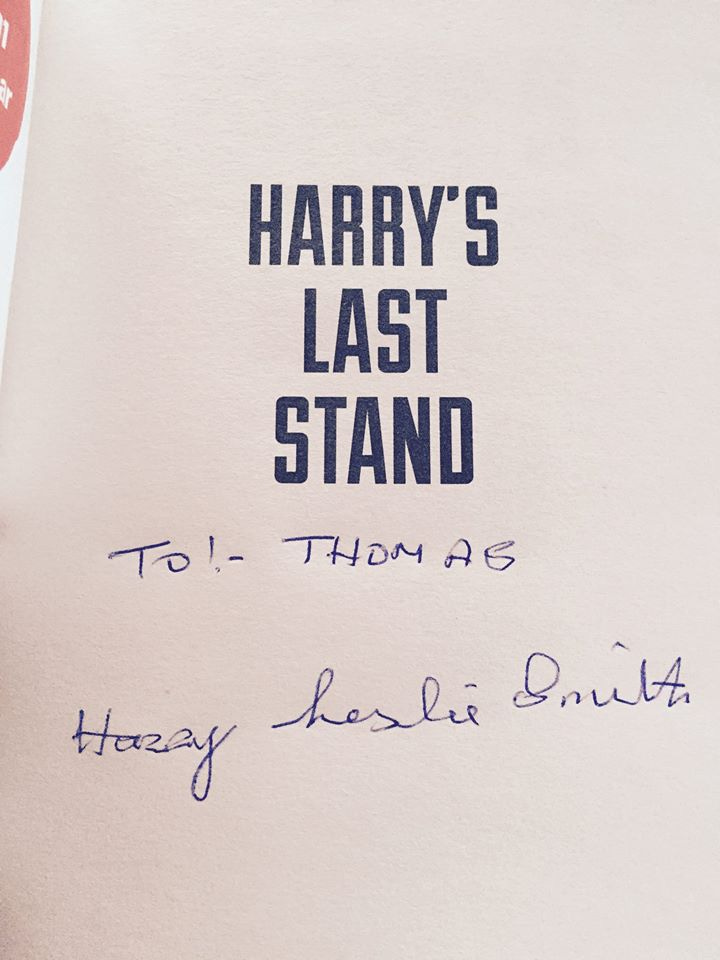The odds are it won't happen. But I am still pleased after almost six years of quiet prodding The Halifax Civic Trust will meet at the end of August to discuss whether my dad's fight to not make his past our future is worth a blue plaque to be affixed on the home he lived at between 1937-1941. It's a small victory if it happens, only because it's rare for someone like my dad ( a socialist from the working class) to get official recognition for his contribution to society.
The Harry’s Last Stand project, which I worked on with my Dad for the last 10 years of his life was an attempt to use his life story as a template to effect change. His unpublished history- The Green & Pleasant Land is a part of that project. I have been working on it, refining it, and editing it to meet my dad’s wishes. It should be ready for a publisher by the end of this month.
Your support in keeping my dad’s legacy and me alive is greatly appreciated. I depend on your subscriptions to keep the lights on and me housed. So if you can please subscribe and if you can’t it is all good because we are fellow travellers in penury. But always remember to share these posts far and wide. Below is an excerpt from Harry's Last Stand.
I have survived. I don’t know why I endured when others who were stronger and perhaps more worthy of life clocked it. There is no explanation, except, perhaps, that I inherited my mum’s indignant spirit to persevere no matter the hardship, no matter the cost. ‘Can’t just roll over and die, ’cause that’s what the toffs expect of you when you’re no more use to them.’
Or perhaps it was my imagination, my love of books and my sister Alberta’s warning to never settle for second best that kept me going. Or it was just sheer, blind luck. When I look back at myself, I see a frail boy who didn’t know exactly where he fit in because the society he was born into was brutal and unforgiving. But though it was a harsh world and a hard time to be a child or an adult, there was still softness in the souls of the people. Even in the slums, people had a quiet grace, which was expressed in their pride at keeping up appearances and trying to keep themselves clean in impossible circumstances.
On washday, the women of our street scoured their family’s bedding and the few clothes they owned with a wooden posher. Afterwards, they hung their wet garments and torn blankets out across a back lane. While they laboured, the women, who had known more darkness than light in their lives, exchanged gossip, commiserated on their misfortunes and debated and discussed how to make these streets of ruin more amenable. They were a parliament of wisdom; they eased the pain of their friends who were being abused by their husbands, shared tips on how to stretch their miserable budgets and tried to keep their spirits up by supporting the emotional needs of their neighbours. On the days when sheets beat against the harsh Yorkshire winds like the sails on a clipper ship, those women of my community worked together as one, to make existence bearable and civilised. For my generation, my story is not unique.
In the beginning, it was a mad dash for us to stay alive and ahead of the dark tides of poverty and illness. It really was the luck of the draw whether you lived or died back then, in peace and war. I certainly don’t miss those days. I was ashamed and frightened by my poverty. I feared for my future and was angry that the ruling class had deemed my people unworthy of a civilised life. The happier periods in my life only began when the social welfare state was created. It made my, and so many other people’s middle years more productive. It was a grand time to be alive and I loved every moment of it.
How couldn’t I, when I had come from nothing and now lived the dream? During the 60s and 70s, I had a wife who I loved and who loved me, healthy children, a home in a good neighbourhood, a garden to grow flowers in and a job that was interesting and provided me with a good standard of living that allowed me to save for old age and make sure my family never went without. It is not that I see those times through rose-tinted glasses because we had our issues. But we had everything we needed, and we knew that even if we fell down the ladder, we wouldn’t fall off it completely. In my old age, I have wanted to recover those embers of fairness that burned in the hearth of our nation and use them to light a new fire in the heart of today’s young to remind them that a great society starts with the desire of its people to be free of both social and economic injustice.
Your subscriptions are so important to my personal survival because like so many others who struggle to keep afloat, my survival is a precarious daily undertaking. The fight to keep going was made worse- thanks to getting cancer along with lung disease and other co- morbidities which makes life more difficult to combat in these cost of living crisis times. So if you can join with a paid subscription which is just 3.50 a month or a yearly subscription or a gift subscription. I am offering a 20% reduction in a yearly subscription to ensure my prescriptions can be purchased today. One new subscriber covers that cost. I promise the content is good, relevant and thoughtful. But if you can’t it all good too because I appreciate we are in the same boat. Take Care, John





I found this excerpt particularly moving. There are many lessons to be learned from it.